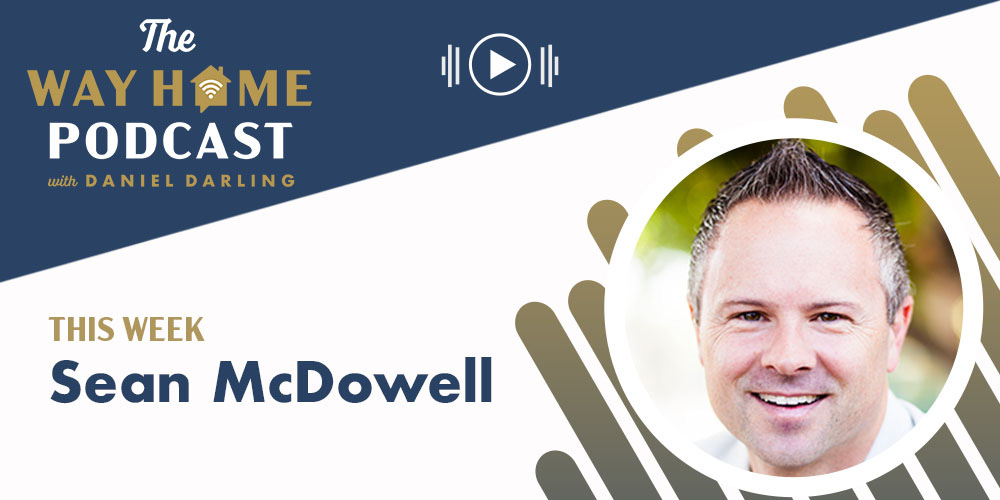There’s a running joke among some of my close friends, colleagues, and former colleagues about my sometimes annoying habit of finding good news and silver linings. During this COVID-19 pandemic, I’ve been the guy who posts about good news: vaccine announcements, articles that show cases dropping, and other such news items. At times, the good news I post is a bit of a stretch, and at times, it is . . . actually good news.
Leaders can often be too optimistic. A lack of sobriety about what is ahead can leave them ill-equipped to lead their people through crisis. The best leaders I’ve known were willing to face the hard realities of what was ahead. Yet, leaders can also be too pessimistic. There is a place for good news. There is a need, sometimes, for optimism.
This last year of COVID has left us a bit uneasy about optimism—and for good reason. What we thought would be fifteen days turned into months which turned into a year of COVID. We’ve seen friends and loved ones around us succumb to this virus. We are lamenting the loss of so much: hundreds of thousands of human lives, the absence of human contact, the crushing economic despair. So when good news comes, we don’t really know how to process it. Can we believe it? Is it real?
If we are not careful, we can succumb to cynicism. Having had our hopes dashed so many times, it is natural to build up a kind of callous on our hearts. Does the Christian gospel have a word for this?
As I write this, we are heading toward Easter. This will be perhaps the first time some have gathered in person in church as we remember a year ago when we spent this sacred holiday on our couches. The themes of this season speak to this kind of tension we feel. On the one hand, we lament the unjust death of Jesus—the ugliness of our sin that was laid on the Son by the Father in order to save his people. We see the flogging, the mocking, the unruly mob that sent him to the cross. We see the betrayal of Judas, the denial of Peter, the running away of the disciples. We see the drops of sweat and blood mingling on his face in the garden. On Good Friday, we can sit in silence and lament sin and death. Christianity is not always a religion of triumph and endless expressions of delight. The gospel is cold and sober about the reality of the world.
Yet Easter is also about good news. The death of Jesus is the death of death. And the empty tomb—the historic reality of Jesus’ resurrection—tells us something new is coming. A broken world, beset by disease and virus and corruption and injustice is being renewed and restored by Jesus. The bodies that waste away will one day be reconstituted into bodies fit for heaven. A new world, a new creation, a new life is on the horizon. This we can believe because it is true.
Easter gives us a way to both lament what is bad and believe what is good. In the Upper Room, Jesus told his disciples, the men with whom he’d spent almost every day for three years, “In this world you will have tribulation, but be of good cheer, I have overcome the world” (John 16:33). John, who was sitting next to Jesus in that same room would one day write, “Light has come into the world and the darkness will not overcome it” (John 3:19). In this in-between time, in the long winter between Jesus’s first advent and his second coming, we can hold both good and bad in tension.
The Bible warns us to expect hardship and suffering and to expect that following Jesus often leads to misunderstanding or even opposition (1 Peter 4:12). The Bible also tells us to appreciate good blessings from the father. James reminds us that every good and perfect gift comes from God (James 1:17). The Psalmist says of God, “Oh, how abundant is your goodness, which you have stored up for those who fear you and worked for those who take refuge in you, in the sight of the children of mankind” (Psalm 31:19).
Christians can be too conditioned to expect good things, but we can also be too conditioned to always expect bad things. Even though I’m an optimist by nature, there is often a tiny voice inside of me that often doesn’t allow me to enjoy good blessings. I’m always thinking Yeah, but this will end soon. Or But surely because of this blessing, the other shoe will drop. Too often, I can’t fully enjoy something good because I’m looking around the corner for something bad.
As Christians, we can be both surprised by hardship in a way that has us doubting God and unwilling to accept blessings that have us forgetting the goodness of God.
Quite simply, we need to accept, enjoy, and believe good news. We can do this without caveats, hedging, and cynicism. Our current blessings may have an expiration date, but that doesn’t mean we can’t take pleasure in them while God allows.
The other shoe may drop. There may be a trial around the corner. It could all be taken away. But for the moment, we rest and take pleasure in the wonderful things God has given us to enjoy (1 Timothy 6:17). And we can see them as a tiny foretaste of that day when all tears will be wiped away, all brokenness will be gone, and there will be nothing bad to taint and smudge what is good.
This Week on The Way Home Podcast
In this episode of the special Easter series in conjunction with my book “The Characters of Easter,” I am joined by Sean McDowell, an apologist who faithfully shares evidences of the Christian faith. Sean has written persuasively about the evidences of the resurrection. Join us for this conversation as Sean talks about some of the evidences of the resurrection and what it’s like to be a Christian in today’s culture.
Interesting Links
Bethany Mandel has a wonderful piece about the joy of big families. It’s a delightful read.
Ross Douthat has a great column on wise approaches to dealing with conspiracies.
Andy Smarick has a must-read in Public Discourse on the importance of founding institutions. If there is something I’d love to see our generation embrace it is the importance of institutions, both reforming existing ones and launching new ones.
Ryan Huber, a Bonhoeffer scholar, has a great new newsletter focusing on applying Bonhoeffer to current conversations. This current one is a wonderful examination of his approach to community.
David French has a provocative essay on the way cultural shifts have scrambled the political parties and the potential for social conservatives.
Karen Swallow Prior has a wonderful reflection on the importance of literature in the life of the Christian.
What I’m Reading
I’m nearly finished with Citizens of London, a fascinating read about the key Americans who lived in London and helped cement the American/British alliance during World War II.
I’m also reading RC Sproul, A Life and A Time to Build by Yuval Levin
Personal Projects
I’ve been doing quite a few radio and TV interviews for The Characters of Easter. My friend Drew Dyck, who is also my editor at Moody, had me on his podcast to discuss writing. I’ve also been working on some projects for The Gospel Project and Open Windows. And this year, it looks like another Characters book is in the works as well as a Bible study on spiritual gifts for Lifeway. So, a busy year of writing!
Stay in Touch
If you got this from a friend or are reading it on social, make sure to subscribe now so you don’t miss any future content.
If you have any feedback on One Little Word, I’d love to hear from you. Connect with me on Twitter here.





